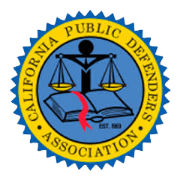
When facing a charge as serious as drug possession, knowing the right defense techniques is crucial. The landscape of law enforcement and legal proceedings might seem intimidating, but armed with effective strategies, navigating through it becomes manageable. From understanding your rights during an unlawful search to recognizing the importance of crime lab analysis errors, every bit of knowledge counts towards building a strong case for yourself.
This guide is all about diving into the nitty-gritty of defending smart drug possession charges that have shown to really stand up in courtrooms from coast to coast. Whether it’s challenging evidence-collection methods or disputing ownership of the controlled substance, these tactics are designed to offer you a fighting chance against hefty penalties.
Table Of Contents:
- 5 Effective Drug Possession Defense Techniques
- Analyzing the Government’s Evidence
- Challenging Illegal Searches and Seizures
- Proving Lack of Possession
- Hiring an Experienced Drug Possession Attorney
- Conclusion
5 Effective Drug Possession Defense Techniques
Facing drug possession charges? You’re not alone. But don’t lose hope just yet. Several powerful defense strategies can help fight these charges and protect your future.
Unlawful Search and Seizure
One of the most common defenses against drug possession charges is arguing that the police conducted an illegal search. The Fourth Amendment protects you from unreasonable searches. If law enforcement violated your rights, any evidence they seized could get thrown out. For example, drugs found in plain view during a legal traffic stop are admissible. But drugs discovered in your trunk after police pried it open without a warrant? That search could be deemed illegal, making that evidence inadmissible. “Those drugs aren’t mine.” It may sound cliché, but arguing that the drugs belonged to someone else is a viable defense. The burden is on the prosecution to prove that you knowingly possessed the substance. A skilled drug possession lawyer will demand evidence tying you, and only you, to the drugs in question. If you were in a car with other passengers when drugs were found, an attorney could cast doubt on whether the drugs truly belonged to you.
Crime Lab Analysis
Just because it looks like an illegal drug doesn’t mean it is one. The prosecution must prove the substance is indeed what they claim. This requires sending the evidence to a crime lab for analysis. The crime lab analyst must then testify at trial about the test results. If there are any issues with how the tests were conducted or the analyst’s credentials, a savvy defense attorney can poke holes in the prosecution’s case. For evidence to be admissible in court, the prosecution must account for its whereabouts and handling every step of the way, from seizure to trial. This is known as the “chain of custody.” The defense can challenge whether the drugs presented at trial are the same ones seized from the defendant. If there are gaps or discrepancies in the chain of custody documentation, it could undermine the prosecution’s case.
Entrapment Defense
Entrapment occurs when law enforcement induces someone to commit a crime they otherwise wouldn’t have committed. It’s a less common defense, but can be effective if the facts support it. For example, if an undercover officer pressures someone into selling them drugs, and the person only does so because of that pressure, that could be considered entrapment. The defendant’s actions were the result of law enforcement’s conduct, not their own criminal intent.
Analyzing the Government’s Evidence
In any criminal case, the prosecution bears the burden of proving the defendant’s guilt beyond a reasonable doubt. A skilled defense attorney will meticulously examine and challenge every piece of the government’s evidence. This starts with scrutinizing the actions of law enforcement. Did the arresting officer follow proper protocol when seizing the alleged drugs? Were any searches conducted legally? Questionable police conduct could result in evidence being suppressed. The defense will also assess the credibility and reliability of the prosecution’s witnesses, including the crime lab analyst. Any inconsistencies or holes in witness testimony can be used to cast doubt on the government’s case.
Challenging Illegal Searches and Seizures
The Fourth Amendment is a powerful tool for the defense in drug possession cases. If the police obtained evidence through an unlawful search or seizure, that evidence generally can’t be used at trial. Some common challenges to searches include: – Lack of probable cause for a search warrant – Exceeding the scope of a search warrant – Lack of consent to search – Unlawfully prolonged traffic stops – Illegal vehicle searches If the defense can show that the police violated the defendant’s constitutional rights, key evidence could be thrown out, significantly weakening the prosecution’s case.
Proving Lack of Possession
To convict someone of drug possession, the prosecution must prove that the person knew the drug was present and that they exercised control over it. This is known as “constructive possession.” But what if the drugs were found in a shared space, like a home or vehicle? The mere presence of drugs doesn’t automatically equal possession. The defense can argue that the defendant didn’t know the drugs were there or that they belonged to someone else. Poking holes in the prosecution’s possession theory is a key defense strategy. If there’s no clear evidence tying the defendant to the drugs, it can be difficult for the government to prove its case beyond a reasonable doubt. Depending on the specific facts of the case, there may be additional defenses available. For example: – If the defendant had a valid prescription for the drug, they were in lawful possession. – If the defendant was unaware that they possessed the drug (e.g., someone slipped it into their bag without their knowledge), they lacked the necessary intent for the crime. – If the police engaged in entrapment (i.e., inducing someone to commit a crime they otherwise wouldn’t have), that’s a complete defense. An experienced criminal defense attorney will explore every possible avenue to build the strongest defense. From challenging the government’s evidence to asserting affirmative defenses, a skilled lawyer knows how to strategically fight drug charges.
Hiring an Experienced Drug Possession Attorney
Facing drug possession charges can be overwhelming, but you don’t have to navigate the legal system alone. Having a knowledgeable drug possession lawyer in your corner can make all the difference. An experienced attorney will thoroughly investigate your case, identify the strongest defenses, and advocate fiercely on your behalf. They can challenge illegal searches, question the prosecution’s evidence, and negotiate with prosecutors for reduced or dismissed charges. Don’t let a drug charge derail your life. If you’re facing drug possession charges, seek legal advice from a skilled criminal defense attorney as soon as possible. With the right defense strategy and advocacy, you can fight these charges and protect your future.
Don’t panic if you’re facing drug possession charges. Key defenses include challenging illegal searches, proving the drugs aren’t yours, questioning lab analysis and custody chains, and more. Having a sharp lawyer can turn the tide in your favor.
Conclusion
The journey through defending oneself against drug possession charges doesn’t have to be navigated alone. With insights into effective defense strategies such as challenging illegal searches and emphasizing inaccuracies in crime lab analyses, individuals stand equipped with knowledge once deemed exclusive to seasoned attorneys.
In our exploration today, we’ve unpacked key defenses ranging from questioning law enforcement procedures to leveraging mistakes within prosecution’s evidence handling—techniques that could pivot your case towards favorable outcomes. Remembering these pointers could make all the difference when standing before judgment; after all, “Knowledge is power.”





